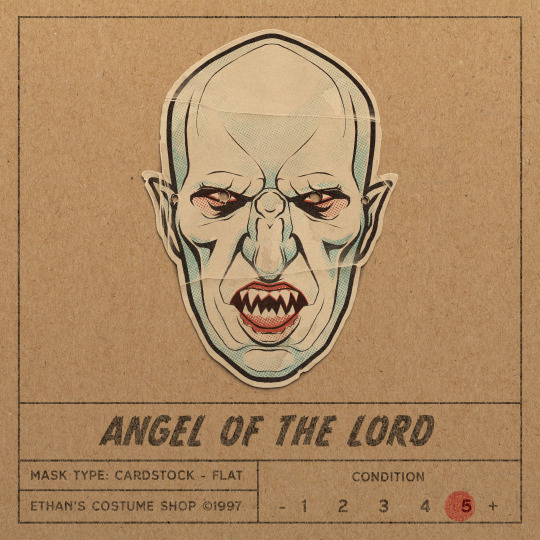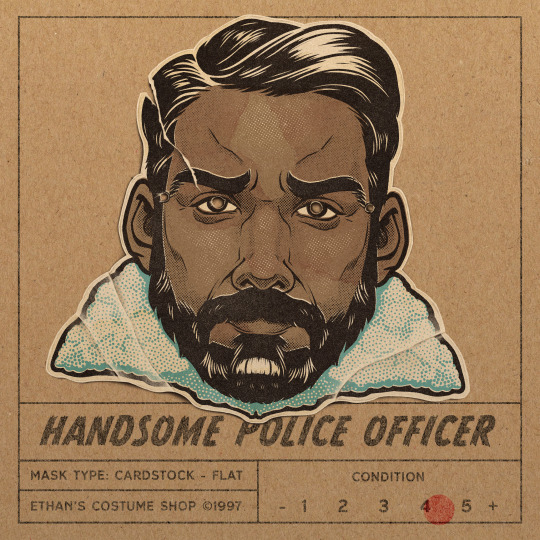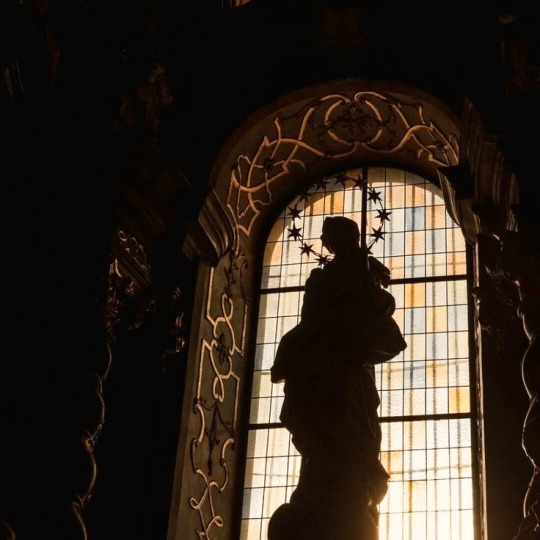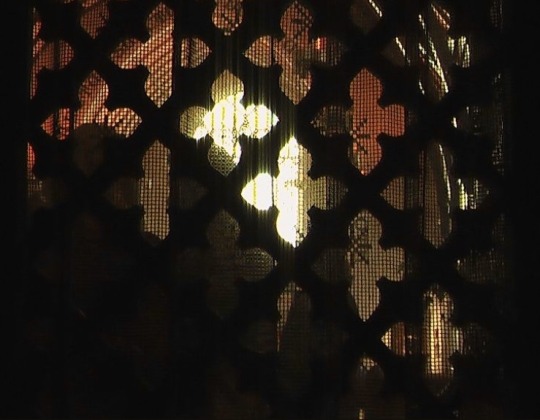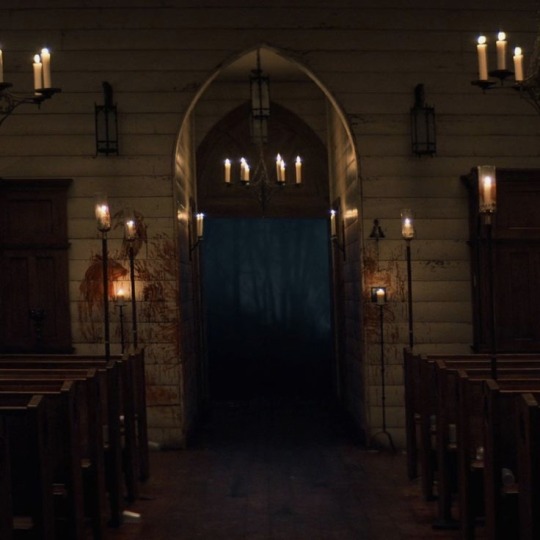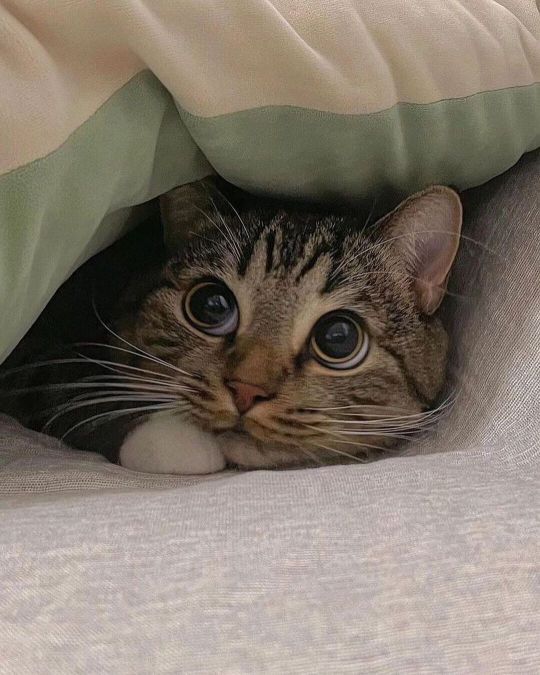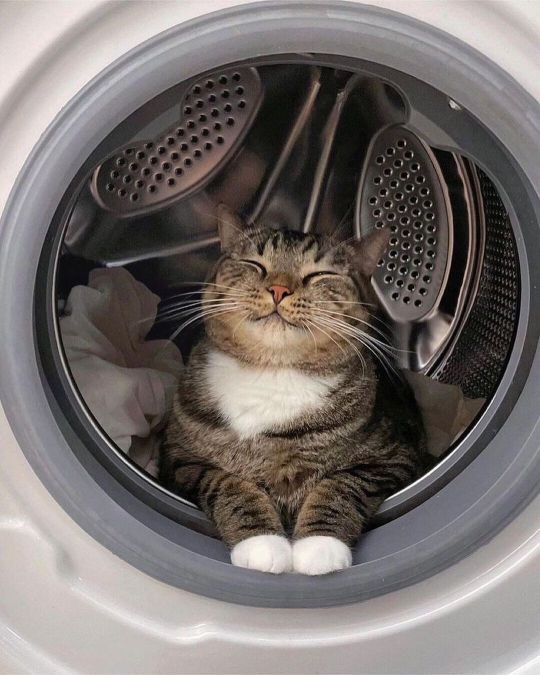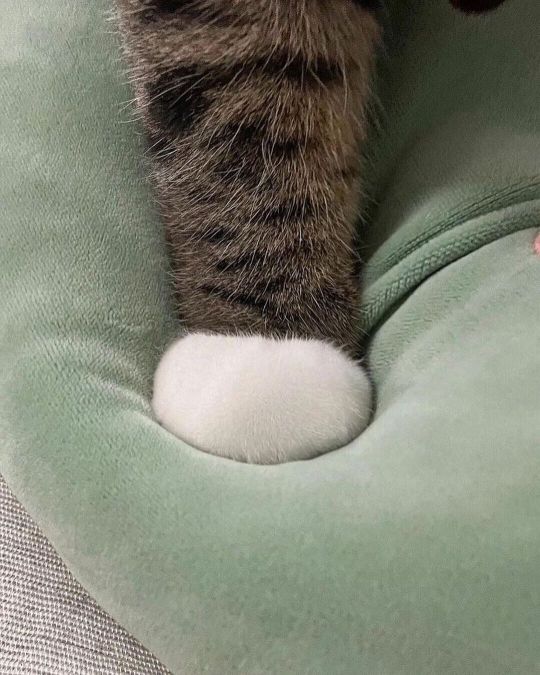Text
me, quietly whispering to the ao3 page of an author who doesn’t even know I exist: I am obsessed with you
54K notes
·
View notes
Text
a little bunny looking at the stars in case you're having a bad day.
˚ . ✧
✧. ★ ˚
★ ☄︎
˚ ✧ ˚
*. ⋆
༘ * 🔭🐇
85K notes
·
View notes
Text
Into the Weave
Chapter One can be found here.
The detritus of the dilapidated temple was stinking death.
At first, you discerned nothing but sandy-colored ruins: thick clouds of dust wafting in the air covered the view. At the same time, the irregular, crooked outlines prepared you for the ruthless sight: the theater of cruelty was about to unfold before your eyes.
Once the dust settled down, you realized with horror that the square before the shrine was strewn with corpses. The unnaturally outstretched arms of one cadaver reminded you of an ancient mythical character who dreamed of flying to the sun. Not far from him lay a nun with a frozen rictus. She was clutching a white volume with gold embossing in her hands. From under the massive column that had once adorned the entrance to the temple, charred tibias protruded. On the altar, next to the Holy Book rested a severed hand with a thin ring inlaid with a blue gem. On the blood-stained pages, you made out a prayer celebrating a certain Aurora, a goddess whose name Mystra, for some reason, desperately wanted to erase from people's memory.
Out of the blue, Gale emerged. He wiped a red splatter off his cheek and winced as his sleeve brushed across the ragged edges of the wound. It wasn't his first battle, true, but he rarely got involved in fights, so he seemed a little disoriented and dazed. By the time he appeared on the battlefield, the melee had already been in full swing, and he did not have time to process the situation. Was it Mystra who started this ugly mess to help him get rid of the remorse that was sure to overwhelm him later? Or was there another cluster of fanatics wanting to take back something that never belonged to them in the first place? Was there a community of hostile bigots ready to take offense at a quiet cult, worshipping an unknown deity? Maybe the situation was much more complicated than he imagined... and much more nuanced than Mystra had described?..
Gale glanced at his hands and distantly registered that they were stained with gore, but he couldn’t comprehend whether it was his blood or someone else's. Mystra's sweet admonitions prevailed, and he participated in the massacre. Blinded and intoxicated by the mere idea of indirectly promised power, the wizard lost control and severely lambasted a belligerent cleric darting toward him with a scimitar. The goddess's voice throbbed in his head, reverberating and repeating, taking over his will. He could not think straight. Every picture his mind offered was generated by an erstwhile exchange with Mystra.
Now he should stop and ponder things over.
Glowering, Gale looked around. He approached the nun with the white book and carefully pulled it out of her lifeless hands. Aurora's Scripture.
Breezing through the pages, the wizard tried to plow through the rituals, customs, and traditions dedicated to this deity, and when the realization struck, he stood there, rooted to the spot.
Aurora, whom Mystra proclaimed a petty demon, was just a minor goddess of dawn. No matter how much she wanted to destroy the world, she simply did not wield enough power to compete with Mystra—or other known gods.
Did Mystra... lie to him? Was it all... hoax?..
Suddenly, the picture fades. The memory dissipates.
“In a sense, I am still responsible for the destruction you’ve just observed,” Gale sighs, clearing his throat. “If you say we part ways after what you saw… so be it. I have been stalling for months, wondering if I should reveal this embarrassing fragment of my miserable biography, and the only purpose I pursued so far was honesty. I am not an infallible human. I am not the ideal man you may be looking for. I am not the perfect partner you undoubtedly deserve. I did wreak havoc in the past, punishing innocent people who worshipped a harmless goddess of dawn. I will not try to justify my wrongdoings by a maudlin apology or mawkish explanations; I know the only reaction it will provoke will be sheer repulsion,” the wizard paused for a moment, as if trying to regain his composure. “Probably, you might be feeling aversion already. Well. I am guilty. And I will accept your decision if you feel this burden is too much for you to bear.”
You raise your eyebrows, not fully comprehending his train of thought. Are any of you perfect anyway? He seems to be comparing himself to the other members of the party, not even grasping a simple concept: you are ready to accept him the way he is. Yes, he’s made a lot of mistakes, blunders, even. Yes, he cannot be forgiven on the basis of his lack of knowledge. But hell, hasn’t he sincerely admitted that he was blinded by his love for Mystra—for the Weave, Magic incarnate? He was ready to sacrifice his own being to touch the untouchable, to dissolve in the endless patterns of sorcery and become history—in the most literal sense of the word. To many, these ulterior or not so ulterior motives evince his desire to make a difference, or exhibit his ambitious nature. To you, they represent his vulnerability: driven by his ungovernable imagination, Gale can throw himself in the thick of it, forgetting of his human needs.
You are here to tame his passions. You are here to become his pillar. You are here to help him navigate. The past should remain in the past, along with the vindictive goddess, claiming him her minion every time she needed to reassert her authority and do the dirty work. The past should remain in the past, along with the undulating affection, severe mood swings, and precise instructions directed at innocent people she chose to abhor.
Gale takes your hands in his bigger palms and carefully brushes his lips across your knuckles, leaving a gentle, chaste kiss. In a moment, he softly pulls away and resumes his lengthy monologue.
“Tav… These hands are covered in blood. I will not caterwaul about it, swearing up and down that I didn’t mean any harm and it was Mystra who bludgeoned me to do it. But I will do my best to deserve you. I will rectify all my mistakes—”
You can’t wait any longer. Gale is certainly known for his propensity towards verbosity, but you’ve always told him that his practiced tongue should find some other use than futile volubility. Normally, he cackles at this and winks, feigning embarrassment, but you know his other penchants, too. But these are between you two. Not for anyone else to know—not even for Mystra.
Smiling, you squeeze his both hands and nod, putting an end to his inexhaustible loquacity. With a forceful tug, you haul him over to the tall sculpture of Mystra at the far wall of the temple. You know what he needs.
Closure.
He has to reconcile with his past to take a first step forward and start from scratch. His errors have contributed to his personality, and Mystra, no matter how much you disdain her for the haughty treatment and ambiguous decisions, has molded the man you love and admire. He is not perfect. But he is good enough to right the wrongs and atone for his offense.
Standing before the towering silhouette of Mystra, Gale grows silent: his distinguished eloquence gives way to speculation. He is contemplating his own choices, reflecting on the previous experiences, but his ruminations don’t seem to be boiling down to a bleak blur of old recollections. No, he’s meditating on his future—the future devoid of outright manipulation.
The wizard peruses the refined features, but his gaze is lacking habitual awe, reverence, and veneration.
“I’ve spent years loving you like mad,” he suddenly blurts out under his breath. “I sacrificed myself to the Weave to just feel the familiar tickling at the tips of my fingers. To just feel you. But you never loved me back. I was such a fool.”
He shakes his head in frustration and sighs again. He is not the one to mourn his past, but it has never dawned upon him how much time he has actually dedicated to someone ready to spare him once necessary. Yes, Mystra is a proud goddess; she has her own views on what's right and what's wrong, but has she ever tried to condescend to a human being she’s teasingly called her lover? Has she ever taken pains to explain her vision of the world she has been planning to create?
Out of the blue, you sense a slight shift in the atmosphere, the tickling at the tips of your fingers. Is this the magic he’s constantly talking about? Is this what it feels like to be able to control spells? Is this is the sensation the Weave gives anyone it chooses? Whether it is the Weave to blame, or the inner impetus caused by a powerful emotion you dare not name, you approach Gale from behind and tenderly place your warm hand on his back. You don’t want to ruin the moment of the wizard, blankly staring at the monument, but your subtle touch only creates magic between you two. He quivers, wakes from his trance, and looks at you. With increasing astonishment, you realize he’s beaming with love and endearment. Sure, you’ve seen this emotion before, but he’s appeared so reserved that you’ve started to think you might’ve spotted a mirage. He’s been so affected by his previous setbacks that he’s never relinquished the hold on his feelings.
Now he is contented. He feels safe, at ease, taken care of. And the thought that you’ve helped his wounds heal excites you so much that you cannot suppress your own smile.
“On a brighter note, I seem to have finally found my personal happiness. One thing gods will never experience.”
You emit a quiet chuckle. This propensity towards verbosity is incurable, but at this point all his non sequiturs have become a charming idiosyncrasy you’ve learned to appreciate. Besides, you’ve found a way to shut him up. One kiss to his cheek is sufficient to silence him, but you can’t miss a chance to irk Mystra, so you press a fervent kiss to his lips—for the arrogant goddess to see. In fact, you’d do so many other things in front of that lovely sculpture, but you have to be respectful. At least, appear to be respectful.
You don’t know whether Gale reads your mind or his intuition tells him something you don’t know, but he turns to the stature again, straightens up his posture and says a few words that still resonate in your head. He has rejected the plaguing passion of the Magic—and chosen you over the Weave.
“I will be your obedient servant, Mystra. But I will never knuckle down again.”
#fanfiction#fanfic#baldur's gate 3#baldur's gate iii#gale dekarios#gale of waterdeep#bg3 mystra#fuck mystra#gale x tav#gale x mystra#gale x reader
9 notes
·
View notes
Text
Into the Weave
Magic had become his avocation, and still enthralled after years of ceaseless practice, he could confidently call it his art.
Find the full version of Chapter 1 below.
#fanfiction#fanfic#baldur's gate 3#baldur's gate iii#gale dekarios#gale of waterdeep#bg3 mystra#fuck mystra#gale x tav#gale x mystra#gale x reader
2 notes
·
View notes
Text
it shouldn't have hurt so much but okay

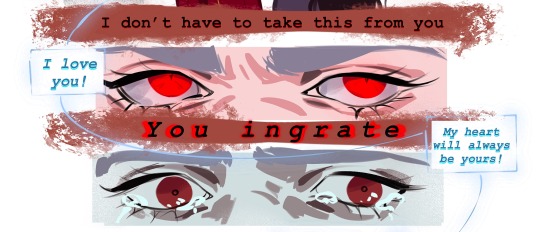
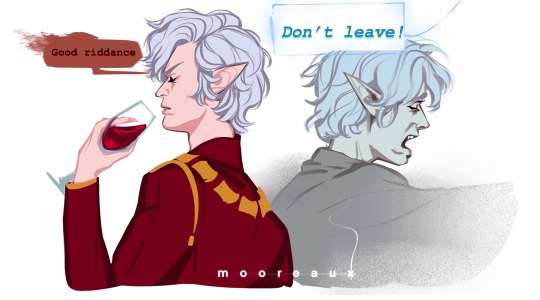
The thought that after Astarion ascends he’s still… in there, somewhere, screaming? That keeps me up at night
17K notes
·
View notes
Text
as i writer, i kill my mental health to write fanfiction.
as a reader, i restore my killed mental health after re-reading what i've written
Please reblog this if fanfiction has been beneficial to your mental health.
133K notes
·
View notes
Text
You Shall Be Mine
Feel free to read my other works here.
Red ribbons of gathering mist are capturing your limbs, immobilizing you, depriving you of the ability to move. While these gusts of smoke seem imaginary, they penetrate your ears, eyes, and nostrils, aiming directly for the brain, trying to hook the tail of the restless tadpole safely nesting in your head.
You’re trying to wrench free, but the ropes twine around your wrists and ankles, splaying you further, turning you into a peculiar specimen for alien research. As if intoxicated, you comply with the tentative touches of the vermillion cords, feeling a weird sense of apprehensive, inevitable comfort. It isn’t a cozy feeling; on the contrary, you are being inexorably put at ease like a fly entangled in a spider’s net. The spider, however, is not revealing itself: it’s hiding in the shadows, in the eddies of the scarlet smoke, waiting, preparing an ambush.
“You shall be mine,” a calm, remotely familiar voice pierces the cloud, “From now on, you belong to me.”
You cannot define the source of the voice, nor can you identify its owner, but it doesn’t bother you in the slightest. All you can do is watch the carmine fog disperse to disclose an enormous, sprawling shadow stepping forward. It stops for a second and bestows a predatory, devilish smile on you so that you discern the glistening fangs grazing across the lower lip.
“You shall be mine,” the creature repeats in a low growl, extending his hands for you, “Forever.”
You idly register the ivory skin stained with brownish blotches. The elongated claws are covered in some oozing viscous liquid, and you’re not sure you want to know what this is. Another bizarre thing is that you are not scared: while the creature is certainly intimidating, consternation refuses to chain your body.
You know the Creature. You can’t quite grasp it; your brain fails to process it properly, but you perceive an inconceivable touch of familiarity in the feline gestures it greets you with.
He knows you, too.
The Creature is looming over you, enveloped in the scarlet cloud of mist curling behind his back. The monster reaches out to you, his bloodied claws brush across your jawline, and you feel a warm trail in their wake, but you can’t tell if he’s hurt you. Is it his blood? Yours? Has it already satiated itself by wallowing in the blood of other victims?.. You don’t know. And you doubt you will ever find the answer.
The features that seem familiar grow more grotesque; the talons are now reaching for your throat, and you dutifully obey, staring directly into the red eyes flashing in the slits of the maroon mist.
Out of the blue, his fingers brush across your face, lingering on the lips, leaving the iron flavor of blood.
“Forever,” he repeats in a singsong voice… and you wake up.
You wake up with a startle. You jump up on your bedroll, trying to shake off the tenacious remnants of the nightmare that stick to the back of your eyelids, painting the world red. Gradually, your vision clears, but objects still cast a vague red shadow, dissolving in the peaceful murk of the camp.
Looking around, you discover Astarion lying beside you on his stomach. You don’t even know whether he actually sleeps: vampires are normally claimed to be insomniacs of the fantasy world, but this one is certainly special. Special is probably an understatement he would loudly argue. This man, destined to drag out the miserable existence of a nocturnal animal, consciously or unconsciously tried to redeem himself all the things he had been deprived of. He was succeeding: histrionic, capricious, and remarkably flamboyant, Astarion never missed an opportunity to express his emotions in the most unacceptable way, adding a waspish note to every darling he granted you. Why did you end up with him anyway? How did you happen to stay here by his side, watch him read ancient manuscripts, and languidly drink wine?
You have no answer to that. Yet you still have to admit that his presence mollifies you and gives you an obscure sense of security you have never experienced before. He might not immediately come to the rescue when you jeopardize your life, but he will certainly not deny you, even though his refined face revea
ls nothing but languorous irritation.
What do you actually like about him? He’s insufferable, arrogant, prim to the extent that even the nobles can't stand him, but you feel an opaque flair of something else he’s striving to conceal. His drawl reverberates in your head each time he stares at you from above. His attentive ruby eyes are always perusing you, prying into the depth of your soul to fish out an attempt at an amateurish gambit. His mischievous smirk always bodes an ambiguous proposition easily surpassing Raphael’s enigmatic and equivocal inklings. Though his wisecracks and ostensibly exaggerated courtesy tend to infuriate you, more often than not, you find yourself shuddering with galvanic anticipation. Astarion’s innuendos, though, are more straightforward than they seem at first. You just have to know him better.
However, under the guise of the deprave libertine, you can discern a vulnerable creature, scared to death and trying to hide. Astarion didn’t choose the life he was condemned to, and while he spread thundering braggadocio about his days at Cazador’s, he was genuinely frightened.
Brooding over this, you mentally return to one particular recollection that still leaves you speechless. This man is instrumental in controlling his emotions: for all his bluster, Astarion never lets you know what's on his mind. Covered in blood, smirking greedily, dreaming about power and strength, he feeds as much information as necessary to keep you mesmerized and enthralled.
Yet, you've got a chance to spot a terrified boy encapsulated in the body of a charming wanton. You saw him lose control only once in the House of Healing when Malus matter-of-factly left a long, ragged incision on a living man, tightly bound to the gurney. Astarion gasped; his red eyes widened, he grew even paler, and when he shouted, his voice almost broke.
That’s when you saw him in a different light. That’s how you started cutting him some slack and ignoring his sardonic, acrid remarks. He wanted to win a few points back, obviously noticing that you had noted that weakness and were now aware of it.
Your eyes pass over the intricate pattern of scars on his back. Normally unbearably garish, Astarion locks up in his head when it comes to his major insecurity. He’s told you about the blemish as a last resort, hoping to get a scrap of help, expecting you to find a way out, otherwise you would never have known. Otherwise, he would have never dared mention it to anyone, including himself.
You can’t resist the temptation, and your fingers hover over the quaint marks. You’re both reluctant and curious to touch them for the umpteenth time, trying to pry into the mystery encompassed in the symbols he so despises. You caress them all the time when you’re in his tent, but Astarion doesn’t seem particularly fond of it: he tries to change the subject and propose another round to make you forget about them. Does it cause him to remember the excruciating throes he had to go through? Does it hurt? Does it remind him of the days spent in Cazador’s captivity?
These questions, much like the previous ones, receive no response either.
“They give you no peace, do they?” Astarion yawns, not even turning his head toward you. “Touch, if you so wish. You won’t get another chance, my dear.”
His words embarrass you, and you jerk away the hand, albeit the desire to caress him only grows stronger.
“Scared already? I thought you were my biggest fan,” he cackles, turning on his back and squinting at you. For a talkative companion, he’s remarkably quiet. He’s calmly observing the taciturn camp, ruby eyes listlessly taking in every detail. His usual volubility has vanished, and he simply examines the surroundings as if he sees them for the first time. Is he pondering over something? What is he thinking? Is he contemplating his previous experiences, analyzing the past, and comparing it to the present? Is it you who makes him brood over the subject he so passionately wants to erase from his memory?
“Have you ever thought of life eternal, Tav?” Astarion finally utters, his stare drifting across the velvet sky stretching over you. “Have you ever wanted to spend eternity with someone?”
His red eyes, now two shades darker than usual, slowly swivel to look at you, and you suddenly recognize an affectionate sparkle in them. Is he slowly melting after years of total freeze? Is he letting himself feel? Is he finally going out of the shell of neglect and sarcasm that indemnified him for more than two centuries?
You shrug and look away. Though always persistent, Astarion rarely brings up such metaphysical topics.
“Really, Tav,” Astarion tries to reason with you, his voice dropping a notch, gaining seductive notes that entrance you. Still, you can hear him ring with yet unknown craving. It’s unbearably close to the lustful whisper, soaring over your neck every night you sneak away from the prying eyes, but at the same time, you feel that his lust is not directed at you. “Look,” he mutters, licking his lips. “Look at this!.. Eternal life filled with power! With Cazador dead and buried, we can rule this world together. We can finally assert our own world order, wallow in luxury and love till the end of the world. Can you imagine, my love? This is going to be magnificent. Magnificent.”
He spelled the last word with the stress on each syllable, his ruby eyes glowing with the eerie backlight, breaking through the darkness of his pupils. Astarion no longer conceals his sheer exultation and excitement, his lopsided smirk discloses one of the fangs.
Enthralled, you can’t take your eyes off of his pallid face. Life eternal? Is this what this is all about? Is this what he truly wants, spending his eternity with you, relishing the endless night together?..
You give him a subtle nod. Astarion hums curiously and scrutinizes you, his grin growing wider, eyes narrowing. Slowly, steadily, he brushes his fingers across your jawline and gently props your chin up, as if he has never seen a more beautiful sight.
“Magnificent,” he repeated, lowering himself on you, his lips gliding across your sensitive skin, his hands exploring your body. “Just magnificent.”
You feel his fingers clutching at your wrists like the red ribbons from the nightmare, but it arouses no fear: instead, you submit to the butterfly kisses he leaves on the tendons of your neck, seeking the pulsating spot with the blueish vein. In a moment, you can hear his hushed voice, hitting your skin,
“You shall be mine forever, my love. You shall be mine.”

21 notes
·
View notes
Text
Hallowed Be Thy Name
If you like this work, feel free to check other ones here or on my AO3.
Unlike all other dwellers of Crockett Island, who primarily focused on life eternal rather than things more mundane, Mildred Gunning never ignored death as a concept and spent a lot of time at the churchyard, taking care of her father’s grave. Almost two decades later, life threw another trial in her way: her husband, a decorated war veteran, suddenly died, giving her another reason to visit the cemetery more often. Even though Millie never loved the man, she had to admit that he had tried everything in his power to deserve her affection and respect—and out of this sheer respect, she occasionally stopped by his tombstone and initiated a conversation conducted in an undertone.
Finishing a quick tour around the gravesite and a short chat with her father, Mildred sighed and braced herself for what she considered an ordeal worthy of a Bible story: after so many years of endless pretense, gimmicks, circumvention, and deceit, she had finally decided to speak her heart out and confess to her deceased husband that she had never been a faithful wife. It was awfully late. It was awfully unfair. It was awfully wrong, and George, though a calloused soldier, never did a thing to justify such treatment on her part, but when he was alive, the woman couldn’t screw up her courage and openly admit her adultery. She suspected that he might have been aware of her affair, but as he’d never brought up the subject, she stuck to the initial tactics and kept her mouth shut until it was too late. George, worn out by war and exhausted by medical complications caused by his old wounds, peacefully died in his sleep when Millie was preparing dinner.
Both John Pruitt and Mildred Gunning could sigh with relief. If their secret had ever been discovered, George carried it to the grave.
Standing there in the wind and rubbing her hands to protect them from the cold, the woman tried to gather her wits and galvanize herself to move. She hoped she could muster all her oratorical skills to warrant her behavior and motives, but she suddenly clammed up, and even in a private talk with her deceased father, Mildred failed to fish out the right words. Her confession would not change anything for George. It would not change anything for her or John either; even though they had called it quits long ago, they still maintained a relationship teetering on the brink of excessive affection. When he saw her, his voice shifted to a softer tone. When she saw him, her eyes glowed as if backlit by thousands of stars drowning in the darkest depths of the ocean. Both avoided staying together for too long, but neither could resist a friendly confabulation, which threatened to lead them to the good ol' days and long evenings by the fireplace. Not infrequently, Mildred envisioned John explaining Latin or Italian to her, making allusions to Dante and other distinguished minds of the past. The powerful temptation to reverse the time and throw herself headlong into another bout of passion often took over, but Millie had already mastered the prowess of self-control, owing it to her deceased husband.
“You know, Dad,” the woman whispered, as if starting a general rehearsal before the intimate conversation with the man who could not hear her, “I tried to live an honest life. But sometimes things just don’t play out the way you plan them to. Now it’s my turn to firmly steer it in the right direction… while I still can.”
Awkwardly shuffling from one foot to the other, Mildred eventually squatted before the tombstone with her father's name gouged in it. She cleared specks of dirt and removed dry leaves from the ground. Standing back up, she patted the stone, her fingers lingering on the rough surface. Her father, known for his sincerity in the community, would probably frown. Or wouldn’t he? As a trustworthy partner in crime, he helped her keep her tiny secrets from the rigorous mother, always ready to roast her daughter for a minor gaffe. Would he support her? Would he give her a bear hug and protect her from the entire world turning against her? Would he console her, telling her to keep her pecker up? Apparently, their relationship would have transformed into something new. Quite possibly, he would have been repelled by the attitude she demonstrated. But Mildred wanted to believe that her Dad would take her side when she withstood pressure from fellow dwellers. After all, his death had taken its toll and affected her psychologically; had he not died, she would have passed entry exams, enrolled in a college, and would now eventually be happy in a place where people never paid attention to a family drama. On Crockett Island, family dramas replaced stultifying gaudy soap operas, often broadcast in snowy images.
Well, this might be too positive a picture, but at least she used to have high hopes.
With a sigh, the woman pulled away her hand and, shivering with cold, hid it under the brown coat.
“Bye, Dad. I gotta go.”
Her voice dispersed in the susurrus of the wind, thrashing high above in the branches. Mildred lingered for another moment and ploddingly trudged to George’s grave, situated a few rows farther to the north, closer to the ocean, so he could hear the sound of waves for the rest of eternity.
Crockett's churchyard, receding into the gloom of the scanty forest, a tiny, somber, but surprisingly tranquil place had long become Millie’s haven where she could hide from the prying eyes and appraising looks. Strolling across the long rows of graves, the woman often speculated about the familiar names she saw dented in stone. Her teacher, Mr. Salisbury, died of a heart attack almost fifteen years ago. His funeral was a mess as the new priest had just been appointed and he barely knew the protocol. Amy Nottingham. Pneumonia. The old Grandma Sally. She smoked a pipe till the age of ninety-two and cursed like a sailor. Rumors said she’d never been married but was somehow engaged in weird services, so she playfully teased the priest, while openly despising the church as a social institution. This iconoclast of a woman always attracted attention: locals glowered at her, lambasting her in their gossip, babbling incomprehensible excuses each time they heard her nearing. Grandma Sally remained impassive if not outright frigid. Perching on the bench and holding the perpetual pipe in her gnarled hand, the woman emanated a powerful aura of self-confidence and outstanding poise. Little did she know, Millie thought every time she walked past the woman's grave. Then she usually halted before the tombstone and gazed at it for a solid minute, trying to recall Sally's placid expression. Despite her assiduous efforts, all Mildred could remember was the old crone’s shrewd squint. That prompted a galvanic thought: maybe—just maybe—the creaker with the pipe smelled something from her own undoubtedly extensive experience. Unlike her fellow dwellers, Grandma Sally kept her mouth shut, and that quality alone caused outrageous slander and scuttlebutt: she used to be a midwife, or a nun, or maybe both; she might’ve fled the authorities and finally settled down on Crockett; she may have committed so macabre a crime and her documents were in such disarray that Crockett was her only option. Needless to say, her figure was enveloped in mystery, unlike her plain, pathetic daughter, who failed to inherit even the sense of humor.
Beside Sally, her perpetual partner, retired Navy Captain Snippet, was buried. He had died several years before her, though he was twice as young. Sister Jane, the nun. Rejected formal funeral. Peter Trifler. Claimed himself to be a buccaneer; told stories with a twist ending to the children of the island. Nurse Sandra Stickhorn. Blank. A tiny grave for an infant named Beverly. Millie, herself a mother, couldn’t ignore it and shuddered every time her eye fell on the name. Mrs. Keane, totally woebegone with grief, seemed to have gone crazy in the most medical sense of the word. Religious to the core to begin with, she obviously wanted to morph into a saint: her pious lectures filled with Christian pathos penetrated every crook and cranny of the place. Despite her natural dislike towards the waspish and hypocritical woman, Millie couldn’t but feel sorry for her: Mrs. Keane struggled to get pregnant and then failed to deliver the baby. Twice. Her only successful attempt was now buried under a sprawling tree facing the ocean. Stopping by the small hill over the grave, Mildred brushed away the dirt and thanked God for her robust and salubrious Sarah, who had inherited her resilient father’s health.
The woman passed several unknown graves. They’d been there for so long that nobody remembered their names. By some quirk of fate, George, probably the most famous dweller of Crockett, was buried among them. The veteran committee took pains to arrange the ceremony and ensure the grave space; they also insisted on laying the man to rest on the mainland among his comrades, but Millie, the only surviving member of the family apart from their teenage daughter, adamantly resisted. Who would’ve visited him then? His parents perished here; his friends stayed here, his wife, after all, had bright memories about the time they shared. He would be so lonely there on the mainland he never really liked. Once he had confided in her that he had wished to come back to the small island drifting in the ocean and glare at the waves for days, listening to his beloved wife humming songs under her breath in the kitchen, baking her pancakes, pies, and meringue cakes.
He would be so lonely there. She just knew that.
“Hi, George,” Mildred uttered in a voice laden with genuine warmth and endearment. Nevertheless, the woman felt approaching trepidation, rising within and palsying her limbs. “I’m sorry I’m late.”
In more ways than one.
As if completely mute, the woman silently sat beside the tombstone, folding her hands in her lap and avoiding looking at the engraved name. For some reason, the woman felt a slithering, viscous sensation, a weird mix of rebuke and shame. She should’ve told him earlier. She should’ve solved this puzzle long ago.
“I don’t know where to start, to be honest,” Mildred muttered, feeling her throat going dry. “So I’ll just blurt it out. George, well… Sarah is not your daughter. She never was.”
She waited for the words to sink in and dissolve in the gust of wind mantling her words.
There was no right way to say it. There was no right way to live it through, but they managed to exist in this condition—or would the word plight suit the situation better? —for more than a decade, having their simple joys and quarrels like any other family on the island. He wasn't a bad husband, really; he never shirked his responsibilities and had a peculiar sense of humor. He could be abrasive and cantankerous, true, and Millie had to deal with his undulating demeanor, aggravated by the war, but George faced a more dreadful ordeal: he had to cope with the woman who never loved him back.
Mildred winced at the thought and touched the man’s grave, her delicate hand gently pushing away the scanty vegetation, so his name would be clearly seen. They had maintained a picture-perfect image of a small but happy family, while neither of them felt a modicum of happiness. Millie, deceiving the man from the very beginning, tended to take it out on him, uncontrollably snapping and muffling her weeping in the pillow every night. She looked miffed all the time, ready to start caterwauling whenever his fingers hovered over her upper arm. The macabre perspective of spending her life with someone she had grown to neglect made her miserable, and she reconciled reality only a few years before his demise.
The vicinity of the church made things worse. The masses she was bound to attend exacerbated the already intricate situation: her quick pregnancy compromised the religious nature of her character and the veneration she diligently evinced in public. Eventually, Mildred evaded sermons to further scandalize her piety. Luckily, she quickly came up with a relatively solid excuse, claiming that the priest’s frankincense triggered her nausea.
It couldn’t be farther from the truth. Millie, playing the role of a faithful wife, stared in the window for hours, trying to spot the familiar black-clad figure striding along the street with the Bible in hand. Occasionally, his dark eyes fell on the tiny figure, patiently knitting another pair of mittens. They exchanged pleasantries; the woman kindly invited him to dinner, but both knew he wouldn’t come. Sometimes John stopped by to apologize for the absence and brought her a card from Florence. Not casting suspicion on the woman he adored, the priest wrote a short inscription: “Greetings from Florence! J. Pruitt.” He’d brought a heap for other dwellers, too, but Millie nonetheless spotted the hidden message he conveyed by the choice of the picture: Dante became their coded language, and Mildred quickly grasped the meaning behind it.
After that minor episode, she went completely unhinged, she remembered. George, who genuinely loved the woman with his entire heart, did all he could to comfort her during these difficult months. In his steel tone, he barked back at the sneering churchgoers and indemnified his pregnant wife from scandalmongers suspecting the sin of adultery. Even if he shared the suspicion, he never let them know. Up to this day, Millie wasn’t sure if he realized she did not belong to him.
George Gunning, hardly a fan of religion to begin with, turned into a convinced atheist who couldn’t stand acolytes and zealots bruising their foreheads by the holy images. Had someone breathed out a word in his direction or in the direction of his wife, the man exploded. If someone glanced at him or his wife askance for not appearing at St. Patrick on Sunday, he went berserk, and people thought better of messing with him. In the end, one stern glare was enough to put them in their place, but the price was high: George practically became a pariah in the close-knit community, acquiring a meaningful nickname—Maul. Only a handful of people ventured to take a detour to his house for a quick chat.
“Do you recall how you practically leveled the whole island to the ground when the Keanes traded rumors and started whispering behind my back?” she smiled meekly, edging an inch forward. “They never said a word since then. Even now, they prefer to stay clear and keep their mouths shut. So much the better.”
Millie sighed and averted her gaze to the horizon, ruminating on the events of the past. He adored Sarah, too. Either he only saw the reflection of the wife he revered or was sincerely attached to someone so small and brittle, George took care of her from day one. Excited to the quick, the man learned to swaddle the baby and gleaned information on feeding and bathing. When Sarah grew older, he taught her to ride the bike and play football. He also called in the war veteran committee to refresh his connections: eventually, he arranged a tour to the American Museum of Natural History in New York for the kids of the entire community, but specifically for Sarah, trying to show her the multifaceted world she was sequestered from.
As someone whose education lacked expertise and refinement, he insisted that his daughter go to college, no matter the cost. Unable to hire a professional tutor here, he enthusiastically endorsed Millie’s plan to send Sarah to the priest for more formal education. At home, he explicitly stated that he would ensure her future in whichever place she chose, be it a remotely known provincial college or the Ivy League. This may have been an overreach, but Millie was impressed: naturally irate, mentally injured at war, the man became more and more irascible as the years went by, but Sarah remained his favorite person in the world. And he kept his pledge: she did get the scholarship.
“George, this is so…unfair, I know,” Mildred bit her bottom lip, “Had I been smarter, I would have never caused you so much pain. I was an egoistic little hag, thinking the world was spinning around me and my caprices. I should have confessed. I should have never started what I started.”
Millie’s eyes swiveled back to the simple bold letters on the stone. He did his best, she knew. Malignant in the residents’ minds, George wasn’t really all that baleful. He occasionally swore and snarled at the neighbors, but he never put up a fight or caused a serious problem. Sometimes, the couple watched TV together, drinking beer, and the man constantly cracked jokes, revealing a sensitive, loving man ensconced underneath the crust of a frigid war dog. He rarely sloughed off this mask, but Mildred cherished every moment he dared do that: whenever he exposed his vulnerability, Mildred felt a growing sense of affection.
She could reminisce one particular moment solidly wedged in her brain. On an evening, having sent Sarah to the priest, Millie eased into the armchair near the fireplace and started knitting a pair of socks. George, unusually quiet, was making a wooden toy for Sarah, governed by his imagination. For a moment, he got withdrawn and said that he’d never felt better in his entire life and thanked Mildred for giving him closure. She didn’t understand him at the time, but now the woman was beginning to comprehend what closure he was talking about.
“George, I am so sorry. But I am so utterly grateful. No matter how much we fought, I knew I could always rely on you, and you would always be on my side, even though I was the one mistaken. I failed to be your pillar, but you always were mine. You bolstered me even when I clearly did not deserve it. You protected me when I was the problem. You taught me to confront and to resist—before you, I could only hide in the farthest pew, hoping no one would notice me. With your help, I became a good, responsible mother, and I believe, I still believe that we raised a wonderful daughter. She’s a skeptic, just like you,” she couldn’t suppress a smile, “But she also knows how to stand up for herself. She’s tough, George. You would be so proud of her now. You would be so incredibly proud of her.”
Suddenly, Millie felt a lump in her throat and fiddled with the hem of her skirt. The bleak sunset backlighted the depths of the ocean, bringing a gossamer of algae to the light. As if on cue, Mildred realized it was time to go: George preferred to stare at the waves alone.
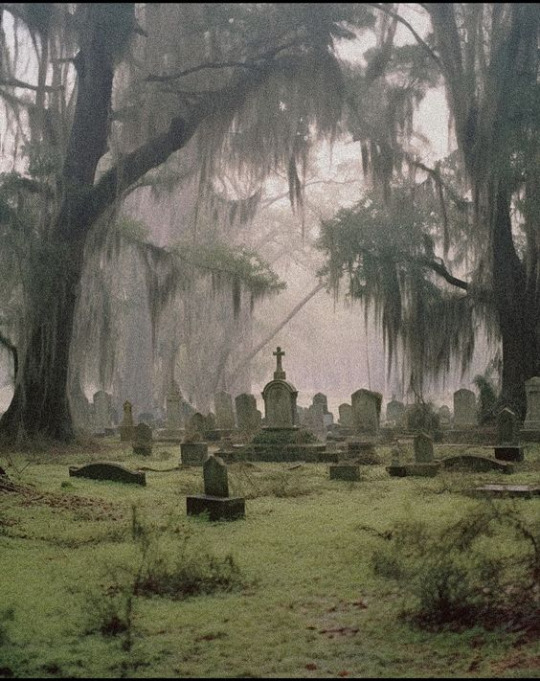
#fanfic#fanfiction#midnight mass#father paul hill#monsignor pruitt#hamish linklater#millie gunning#hamfam#mildred gunning#john pruitt#george gunning
3 notes
·
View notes
Text
visiting the paris catacombs today and my mom messaged me saying "make sure you check the weather forecast before you go" . in the catacombs?
73K notes
·
View notes
Text
Another Fic
She's contemplating another fic on Midnight Mass, tell her to stop :|
0 notes
Text
See You Tomorrow
At any other time of day and week, St. Patrick’s would be overcrowded, but today, for some reason, no one showed up. Abandoned, shabby, and merely whitewashed, the church looked especially dilapidated and decrepit. How did they manage to live in such a ramshackle place? How did they grow used to the dull and stultifying landscapes enshrouding them every morning when they opened their eyes? How did they find the vivacity to arrange fairs and local competitions while he strove to impel himself to return to the island each time he visited the Vatican?
He sighed and leaned back in the confessional, mentally asking for forgiveness. Someone had to do it, he reminded himself. You chose this path; no one forced you into a school of theology. Truth be told, he never doubted his vocation: since the death of his little sister, John struggled to find a purpose, and God seemed to be the perfect answer to all his aspirations. Lonely and confused, the boy rummaged in books, spoke to his parents, and tried to contemplate the situation by himself, but only the parish priest turned out to be competent enough to offer a decent explanation. It didn't mollify him at the time but granted the young man the necessary respite to resurface from his grief and get back to the daily routine. The salubrious effect of the conversation with the cleric lasted sufficiently long for John to make the decision that defined his entire life: the day Bishop Burke ordained him became one of the most memorable moments. John Pruitt, a mere fledgling without any decent experience, finally found his place within the confines of the church.
Pruitt cast another glance at his watch. 7:30pm. Usually punctual, not a single congregation member turned up. It happened every once in a while. At first, John felt mildly offended and insecure: if his people refused to attend, that was his fault; he failed to deliver God's message and inspire his congregation. Judging by the example set by his role models at the seminary and in the Vatican, he felt he could not compare: his reasonings sounded lame, his wording lacked power and ethos, his tall frame, looming over the pulpit, might have created an impression of a hangman, rather than a compassionate guide, a shepherd, willing to bolster his sheep and help them discover the right way. When the initial stage of self-criticism came to a close, John realized that he was never the one to blame. Unlike residents of bigger cities, local dwellers dedicated all their time to work, as their lives naturally depended on it: women who worked at school or in a store could certainly not survive on their own, so they relied on their husbands, dealing with fishing and sailing. They would occasionally stop by and listen to the preachings when the weather threatened their boats, and the men felt robust enough—and bored enough—to socialize with their neighbors at St. Patrick's. Obviously, today, though cloudy, was a good day, and no one was eager to confess.
At this, the priest smiled. Sins on Crockett were never too hideous: these were truly religious people who sometimes strayed and needed direction. Someone drank too much, others ate too much; a case of adultery was reported, and maybe the pious Keanes exaggerated the inadvertently exacerbating situation with the deteriorating morals, never admitting their own arrogance and a knack for gossip. But aren’t we all like this? Aren’t we all inclined to make wrong decisions and overindulge in minor temptations? Aren’t we all flawed human beings, more or less exposed to the imperfections of this world? Aren’t these problems, so pathetically commonplace and hackneyed, perennial and common for any diocese, regardless of location? In this case, he shouldn’t complain: at any rate, no one had confessed to a felony or a sin he would have a hard time to absolve.
Pruitt looked at his watch once again, and, following the hand striking eight with his eyes, he reached for the stole to take it off. Suddenly, the man heard the light steps softly echoing in the empty church.
His heart missed a beat. He knew exactly who was coming.
The woman quietly stepped into the confessional, and the priest sensed an unfamiliar bout of frisson spreading across his body in a warm wave.
He couldn't see her face, of course, but by the rustling of her clothes, he understood that she knelt and folded her hands in a silent prayer. She seemed hesitant, and he didn't hurry her: after all, they had an eternity ahead of them, as no one was going to accidentally turn up this late in the evening. Usually, Pruitt would tenderly nudge parishioners, knowing that soon their confession would eventually trickle out through the lattice of the booth; with Mildred, he did no such thing.
In a few minutes, she finally spoke.
“Forgive me, Father, for I have sinned,” Millie whispered in a low voice. Pruitt envisioned her tiny frame, sloping shoulders and hands folded in prayer and pressed to the forehead. “I committed a mortal sin—”
The man gave a start. What could she have done? This innocent woman, always smiling, always immensely kind and considerate? What did she consider a mortal sin? He almost bit his tongue, suppressing a weird urge to call her by name.
“I…” she paused, trying to find the right words, “I fell in love with a man I cannot be with.”
Her words startled him further. Of all the people he had met, she might be the only one who deemed feelings to be a sin: even those who cheated on their spouses latched onto the thought that love was a blessing sent directly by God. A rudderless blessing, as one parishioner said; no matter how daunting it seems at the beginning, you eventually give in. John couldn't stifle a cackle that time, and now he was exposed to a completely different point of view.
"But love's never a sin," John heard himself saying. "Above all, love each other deeply, because love covers over a multitude of sins... And over all these virtues put on love, which binds them all together in perfect unity... These are the verses that come to mind immediately, but there are many more."
Millie paused, and he got an impression that it was stubborn taciturnity rather than that of acceptance. The priest didn't know the woman well, but from his short exchanges with her, he deduced that she hardly agreed with other dwellers on the island. An overt, outright rebellion would endanger her independence, so she remained affable, but it never meant she supported all the ideas voiced at local gatherings. She lived her simple life as the next man, creating an inner bubble of things she enjoyed.
“Why do you think it's wrong to love a man?”
She adjusted her dress and sighed.
“Not any man. One particular man.”
The priest felt tension growing, his mouth going dry for no reason whatsoever. He cleared his throat.
“Is he married?”
Another pause.
“In a way.”
In a way. What does this even mean? Did she get seduced by a stranger from the outer world who deceived her and abandoned her after he satisfied his needs?
Before he managed to contrive a decent answer, the woman continued, “Well, he’s… not married in the full sense of the word, but he’s sworn, too. Oath bound,” Millie said vaguely in a coarse voice. “And I do not know… I do not know how much longer I will be able to hide it. To pretend that everything’s fine.”
John contemplated it for a moment. He had heard a great deal of confessions, each scarier than the previous; he talked to his superiors at seminary, consulted them, discussed the entire topic, not sure how to behave around murderers and terrorists who decided to find their way to God; he mentally prepared himself for all types of complications, but this one was never on the list. The man couldn't deny his own curiosity and shame, his bizarre urge to see this woman's face and hear her calm voice, but her confession, so obvious in its honesty and candor literally pulled the floor out from under him. Was it possible that she—
“Why…” he swallowed thickly, feeling the words sticking to the back of his throat, “Why won’t you tell him?”
Millie seemed genuinely surprised, but when she replied, her voice sounded firm.
“I… it won’t do any good to either of us. I do not want to be the reason for his falling. Let me be the sinner.”
“But you did not commit any mortal sin. Our emotions can be utterly illogical; sometimes we make decisions based on our speculations, and—”
“Thank you, Father.”
Mildred seemed to be putting a stop to his lengthy monologue, but she didn't leave immediately, and he didn't have the heart to send her away. Instead, they were just sitting there quietly, listening to the distant rumble of the upcoming storm, both reluctant to break the fragile connection forging between them: they could always pin the blame on the weather, if someone planned to question her late return. Would anyone plan to question her late return, though?.. He knew she lived alone as her mother had left for the mainland and her father had died, but was she involved in any kind of relationship? George Gunning attempted at courting her, but the only reaction he seemed to be receiving was a polite smile and a lemon pie she brought as a courtesy. She still smelled bakery, violets, and sea salt. A most fascinating combination of fragrances, especially to someone so used to frankincense…
The woman shifted slightly behind the lattice, and he heard a quiet sigh. She came here seeking validation and warmth, and he only managed to utter a few general words that probably did no good.
“Millie… Mildred,” he called softly after another long pause, suddenly going against all the formalities and regulations, implying that he be absolutely impartial. But what’s the point of playing this game when she already knew he was aware of who exactly knelt in the narrow compartment next to him? “Thank you for your honesty.”
He couldn’t see her, but he sensed a slight change: she shifted, or gave a start, or moved to hide her rosary that was knocking against wood. For some reason, he envisioned her caramel eyes staring directly at him.
“It takes a lot of a person to speak their heart out,” Pruitt started pensively, carefully choosing every word. “And I appreciate it that you trust me.” He paused for a moment. “I… am honored to be able to discuss it with you, even though I cannot say I have any expertise in the field of human relationships… Thank you, Mildred. You may be dismissed.”
She didn’t respond right away, as if she needed a moment to process his words. But when he finally heard her voice, he could make out a smile, which inevitably caused her face to appear in front of his mind’s eye: always cheerful, kind, and gentle, Millie waved her hand to attract his attention and invited him for tea. He rarely rejected: she eagerly listened to his endless stories, and was genuinely interested in history and art.
“No ‘your sins are forgiven, go in peace’?” she drawled in a soft voice, grin tugging at the corners of her lips.
“I’ll give you the absolution whenever you need it, but for now you don’t seem to have committed a sin,” he replied in the same lighthearted voice, feeling relieved. “See you tomorrow.”
“See you tomorrow.”
When the door behind her closed, father Pruitt leaned back in the confessional and thought that maybe—just maybe—he had made the wrong choice.

#midnight mass#father paul hill#fanfic#fanfiction#millie#mildred gunning#john pruitt#monsignor pruitt#father pruitt#millie gunning#hamfam#hamish linklater
11 notes
·
View notes

